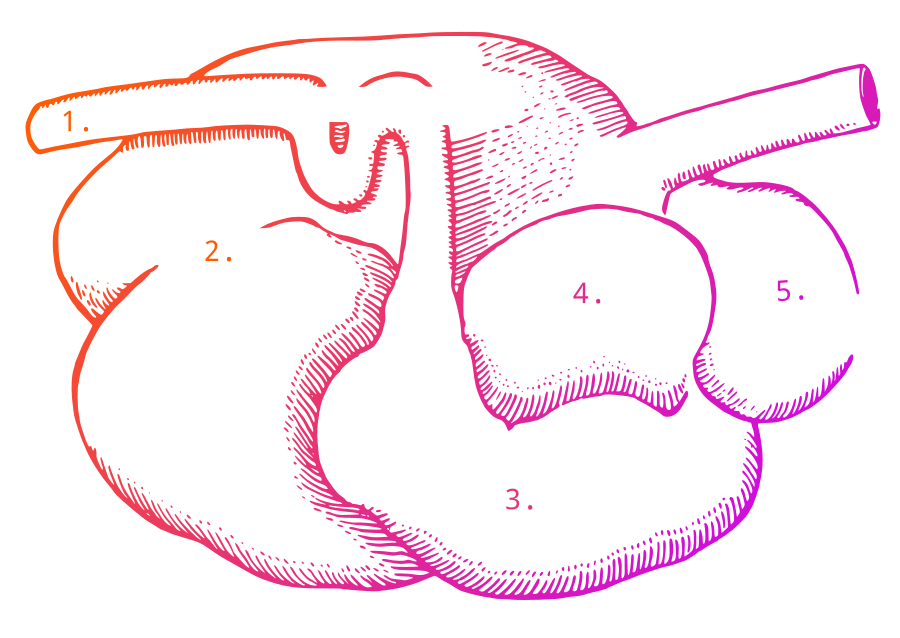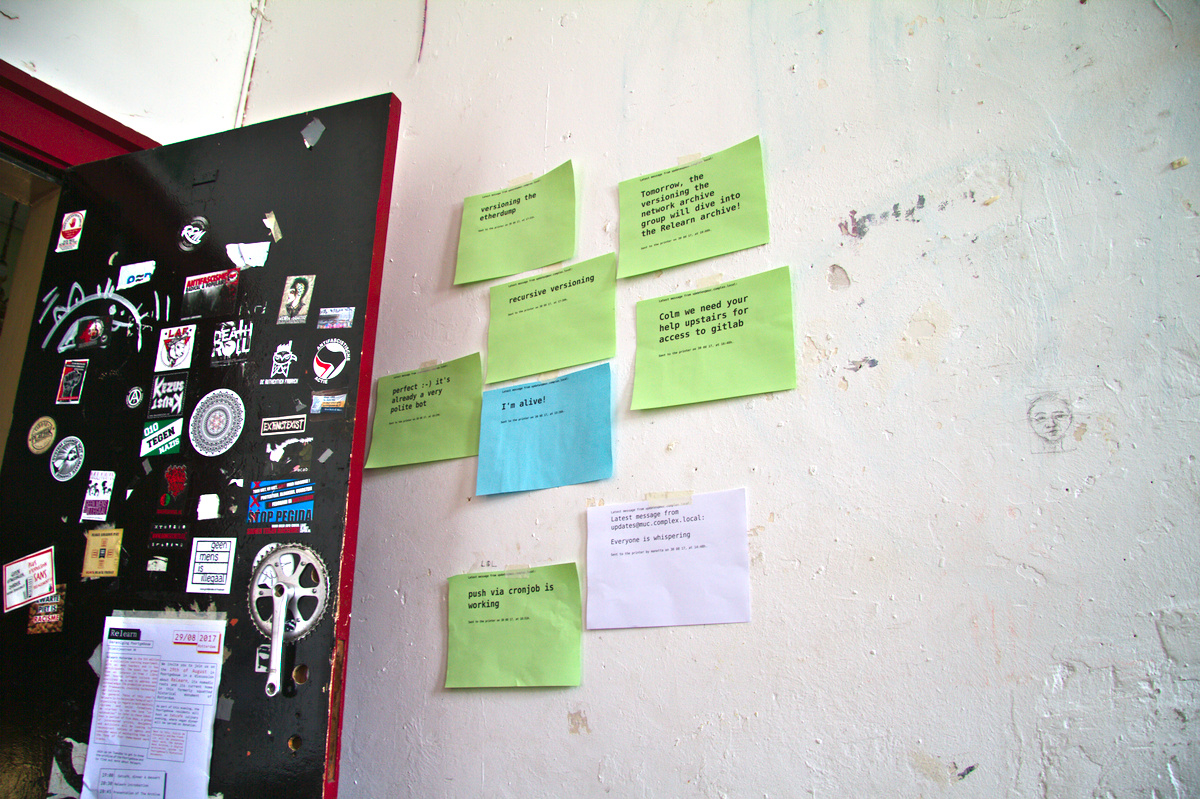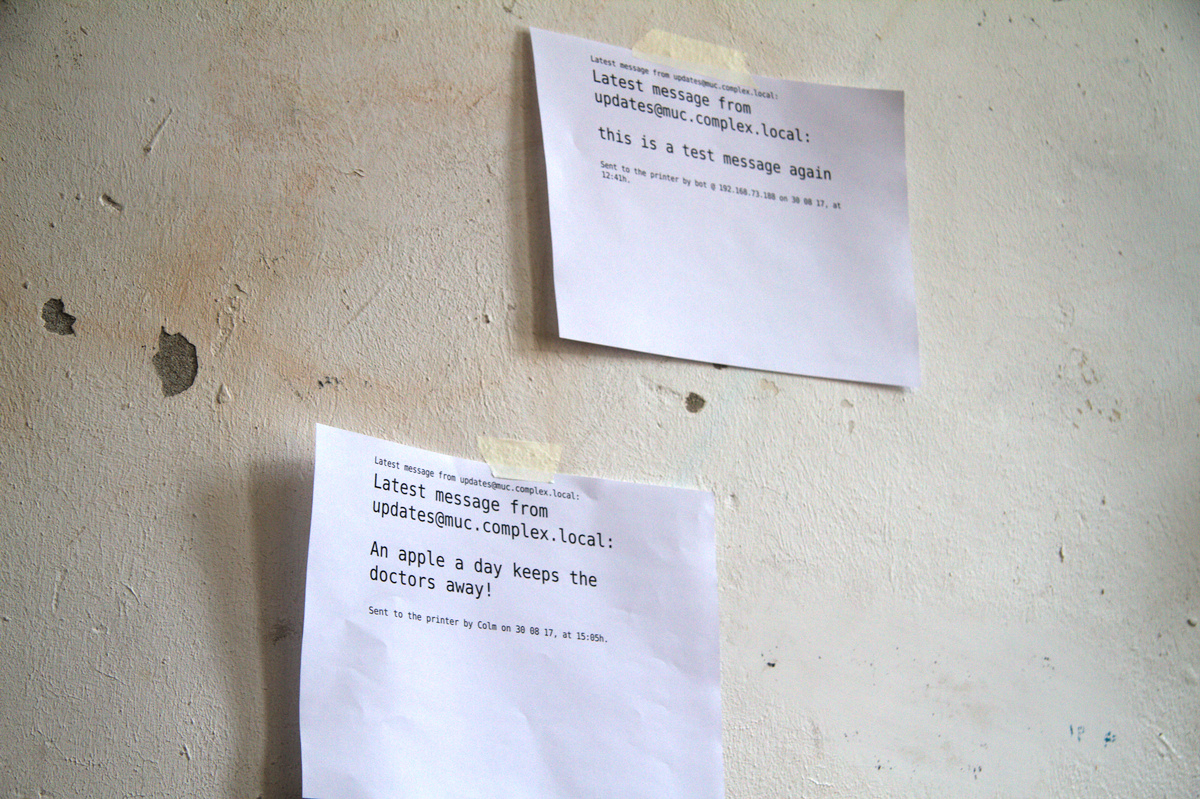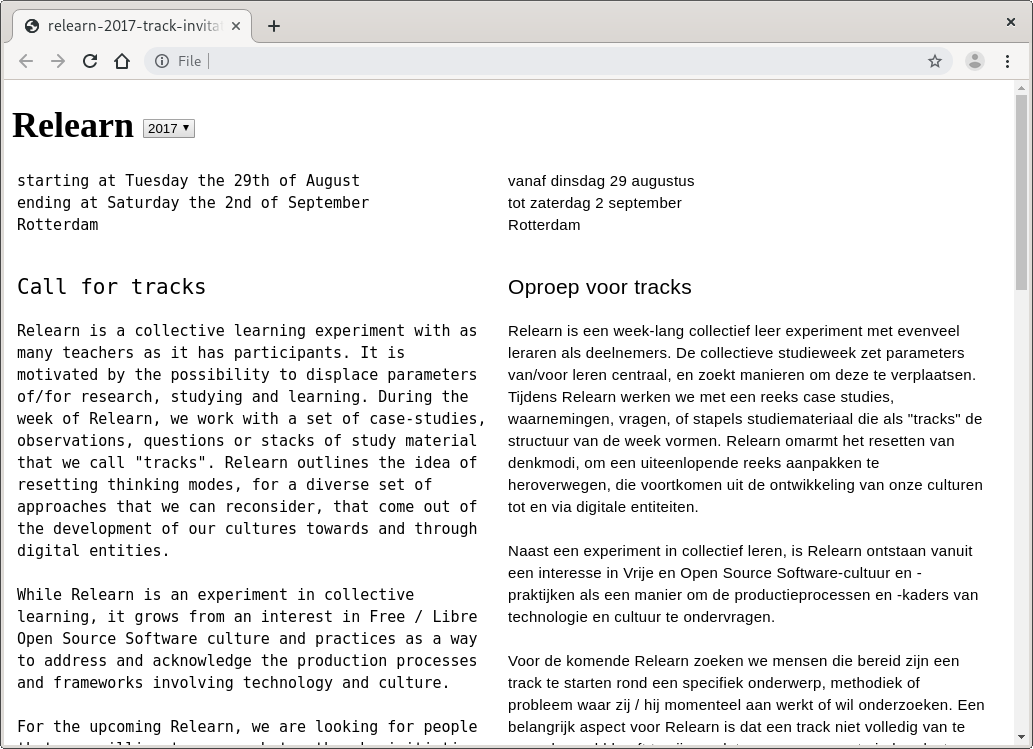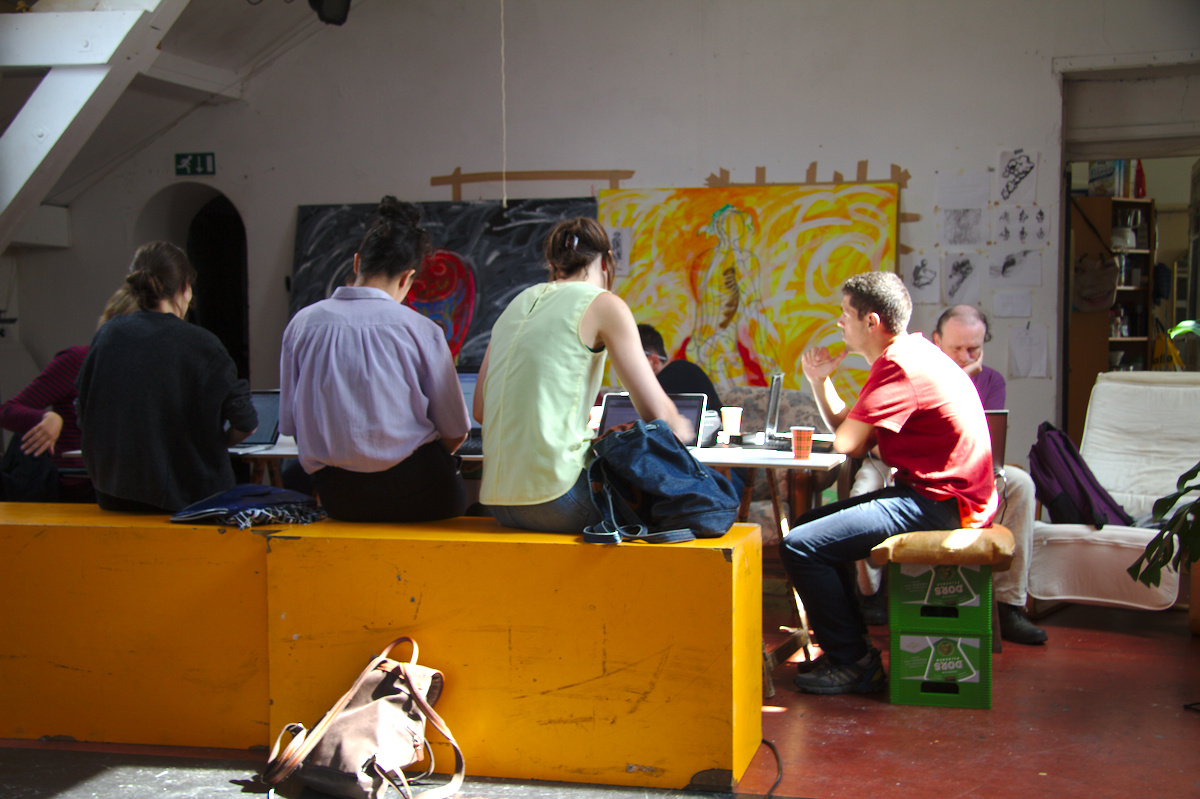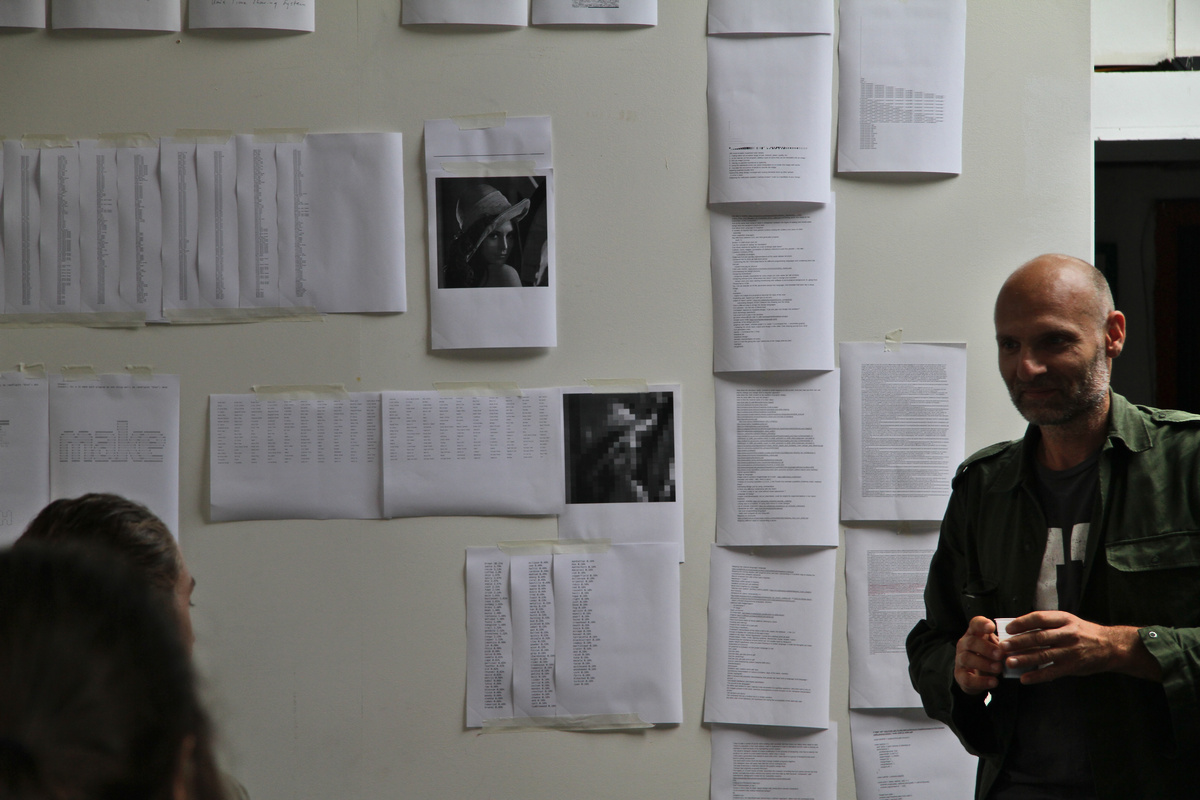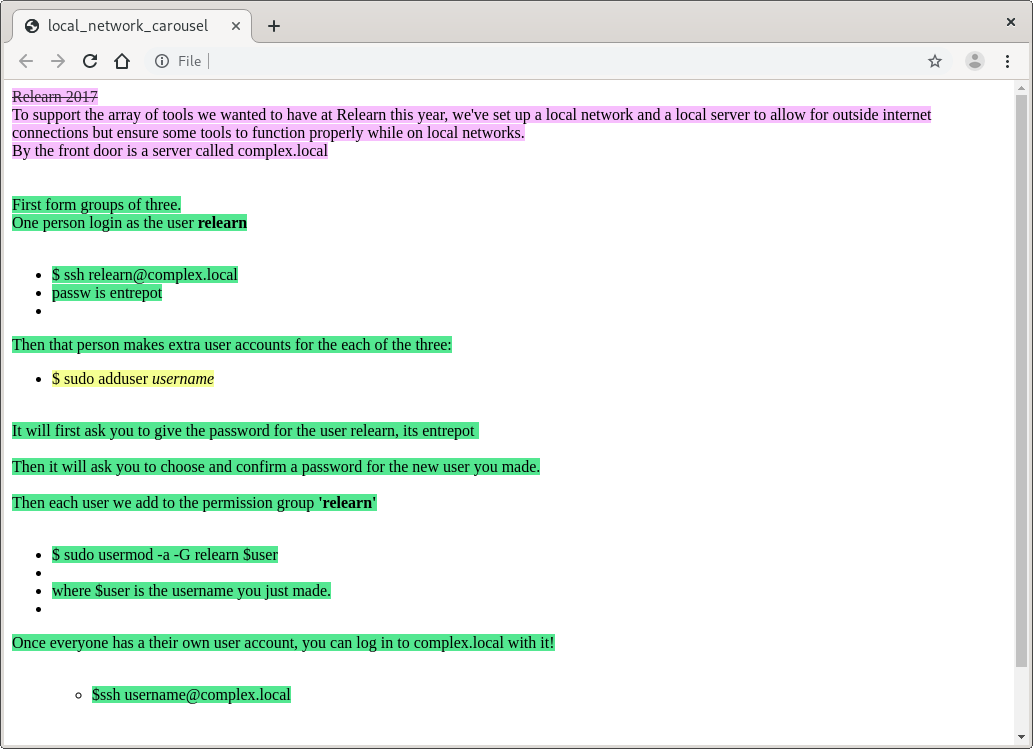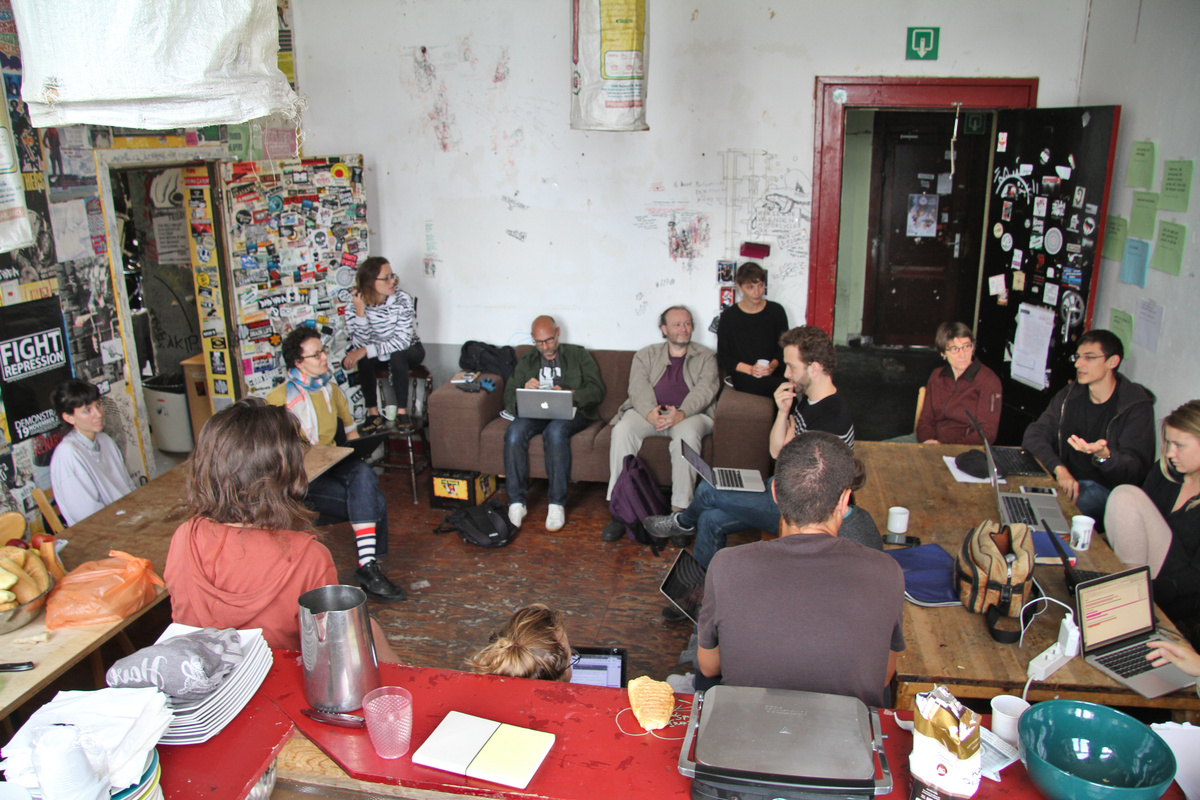Revisions: 6417
publication.sources/nooo.relearn.preamble
Preamble
This text appears out of order. Not only because of how we’ve organised it, but because we are writing about a collective learning experiment called Relearn, almost two years after it took place. The documentation of Relearn 2017 is of interest on its own, but it is also ressurected as part of the Network of One’s Own: Three Takes on Taking Care publication made at Varia.
As part of the collection of Networks of One’s Own editions, we want to document a network of people shaped by multiple editions of Relearn, a week-long collective learning experiment that has been taking place since 2013 mainly during the summer; a recurring moment for us to meet new or known free software curious peers.
The following text’s choral voice comes from the reactivated core of people who initiated and organised Relearn back in 2017. We are Manetta Berends, Cristina Cochior, Silvio Lorusso and Colm O’Neill, but instrumental to organising Relearn 2017 were a lot more people, including Giulia de Giovanelli, Max Franklin, Roel Roscam Abbing, and the members of the Poortgebouw residency in Rotterdam. And let us not forget of the remaining 30 participants. This text, however, is written from our point of view and as a consequence does not reflect all of the opinions and outcomes of the session itself. We don’t want to see this as a shortcoming. Instead, we deliberately decided to embrace the act of documenting an event in fragments, which might be the only way to reveal what Relearn 2017 as a whole was.
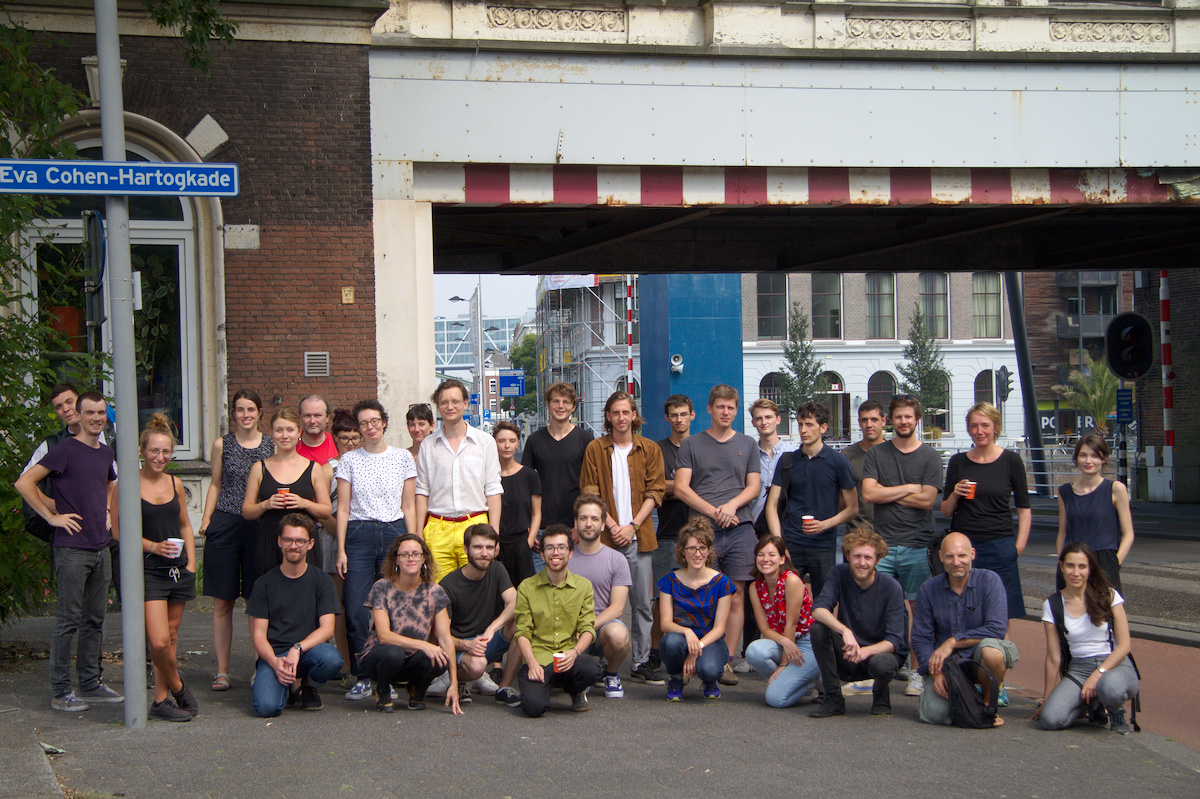
In the early months of 2017, the idea to bring Relearn to the city we live(d) in sparked up. Why organise it at all? Looking back, we never once stopped to ask this question. It seemed self-evident that there was a collective desire, if not a need, for previous encounters to continue happening. We became excited at the idea of organising an edition as a way to give something back to the Relearn community, but also to bring it to Rotterdam for the first time, to connect it to people around us, and to contribute to the shape Relearn could take.
This process of documentation is less about reporting and sharing files—although we’ve selected a representative collection of images and files—than it is about reflecting about what was sucessful and what wasn’t, particularly in regard to the new format that Relearn has adopted in 2019.
We began this documentation with one of the first texts that was collectively written: the call for tracks. It became our first point of interest as it actually introduces a lot of Relearn notions. We began annotating this call and realised how the comments alone produced a different understanding of the text. This vernacular Relearn glossary has come to be populated with history, context and opinions, so it is our point of departure.
We spent some time reflecting on what it means to actively document Relearn 2017, thinking of ourselves as ruminants. Next, we detailed how we responded to the proposals that were sent following the call for tracks. In the publication itself, we’re interlacing elements of the documents produced at Relearn such as contextual images. We’ve chosen to manipulate this documentation with a few tools that we’ve created, modified or extended (more about this in the colophon) to serve the purpose of re-entering a relearn way of thinking.
We end this text by pointing to the current experiments that are taking place in 2019 while Relearn is travelling on its curve between Rotterdam, Brussels, Paris and wherever else there’s enthusiastic relearners.
Our aim with this publication is not to focus on tools and methods, as Relearn usually would, but instead to emphasise the experiments we tried in 2017 in relation to Relearn’s overarching patterns and the contextual influences that arose from organising this week in Rotterdam.
